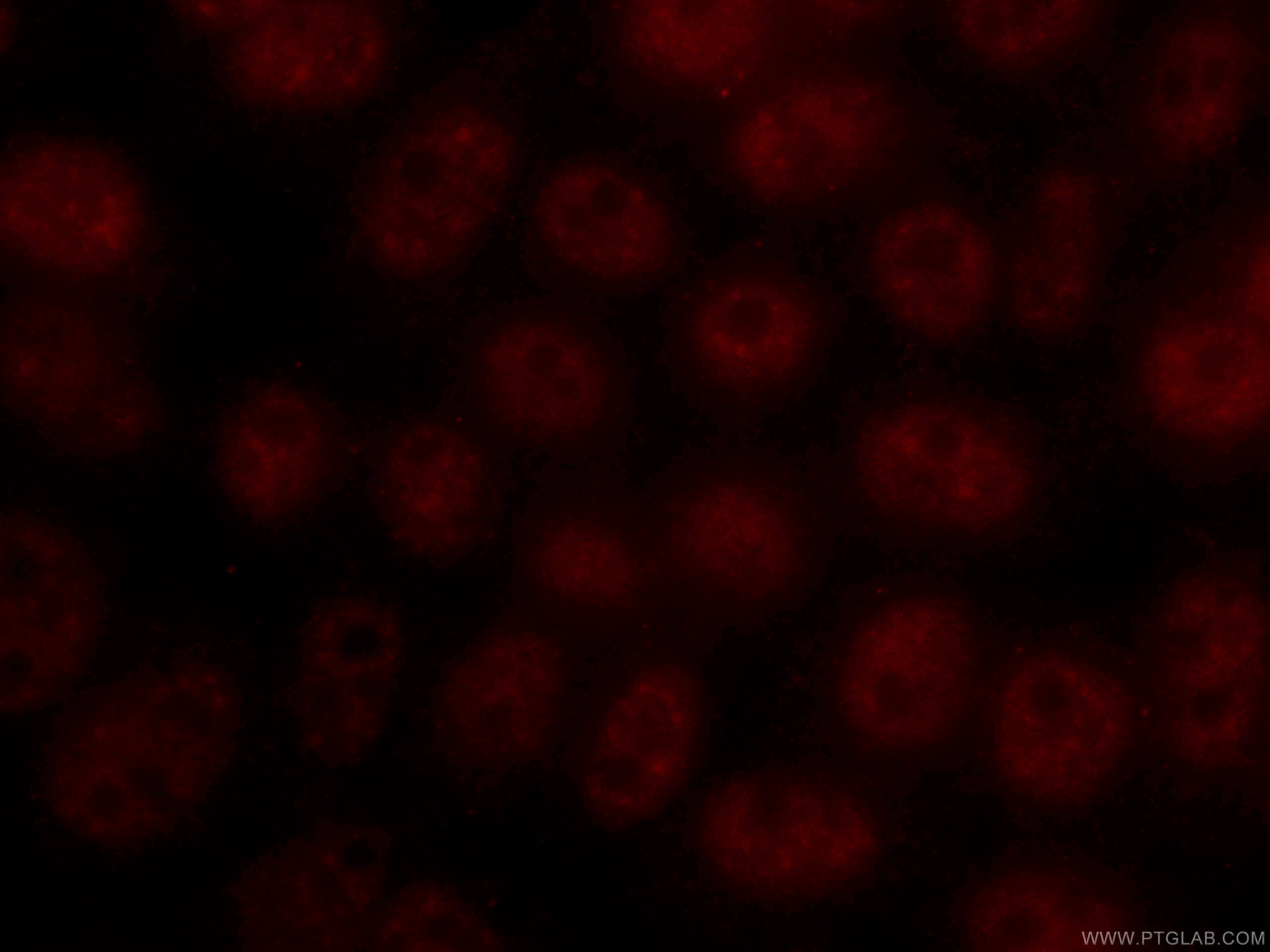验证数据展示
经过测试的应用
| Positive IF/ICC detected in | HeLa cells |
推荐稀释比
| 应用 | 推荐稀释比 |
|---|---|
| Immunofluorescence (IF)/ICC | IF/ICC : 1:50-1:500 |
| It is recommended that this reagent should be titrated in each testing system to obtain optimal results. | |
| Sample-dependent, Check data in validation data gallery. | |
产品信息
CL594-66114 targets TFIP11 in IF/ICC applications and shows reactivity with human samples.
| 经测试应用 | IF/ICC Application Description |
| 经测试反应性 | human |
| 免疫原 | TFIP11 fusion protein Ag5821 种属同源性预测 |
| 宿主/亚型 | Mouse / IgG2b |
| 抗体类别 | Monoclonal |
| 产品类型 | Antibody |
| 全称 | tuftelin interacting protein 11 |
| 别名 | bK445C9.6, FLJ22086, hNtr1, NTR1, STIP, STIP 1, TFIP11, TIP39 |
| 计算分子量 | 97 kDa |
| 观测分子量 | 97 kDa |
| GenBank蛋白编号 | BC033080 |
| 基因名称 | TFIP11 |
| Gene ID (NCBI) | 24144 |
| RRID | AB_2883515 |
| 偶联类型 | CoraLite®594 Fluorescent Dye |
| 最大激发/发射波长 | 588 nm / 604 nm |
| 形式 | Liquid |
| 纯化方式 | Protein A purification |
| UNIPROT ID | Q9UBB9 |
| 储存缓冲液 | PBS with 50% glycerol, 0.05% Proclin300, 0.5% BSA , pH 7.3 |
| 储存条件 | Store at -20°C. Avoid exposure to light. Stable for one year after shipment. Aliquoting is unnecessary for -20oC storage. |
背景介绍
TFIP11, also named as Tuftelin-interacting protein 11 or Septin and tuftelin-interacting protein 1, is a 837 amino acid protein, which contains one G-patch domain and belongs to the TFP11/STIP family. TFIP11 may localizes in the nucleus and cytoplasm. TFIP11 is involved in pre-mRNA splicing, specifically in spliceosome disassembly during late-stage splicing events. TFIP11 may play a role in the differentiation of ameloblasts and odontoblasts or in the forming of the enamel extracellular matrix.
实验方案
| Product Specific Protocols | |
|---|---|
| IF protocol for CL594 TFIP11 antibody CL594-66114 | Download protocol |
| Standard Protocols | |
|---|---|
| Click here to view our Standard Protocols |
